7 Frugal Cooking Tips from The Great Depression
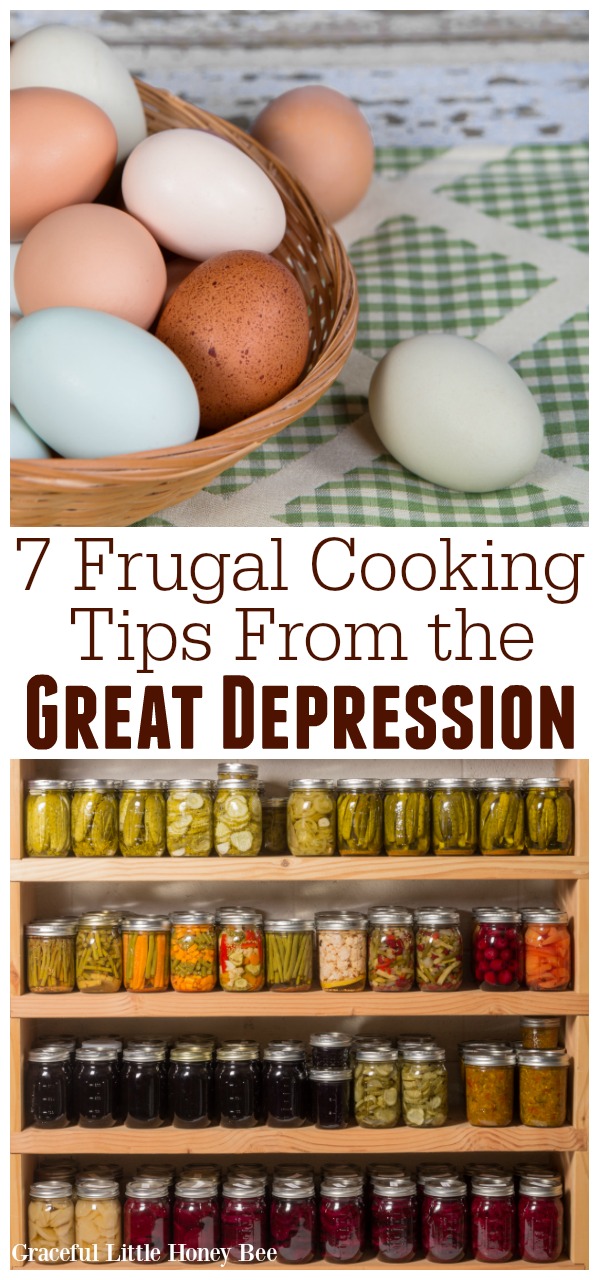
Check out this list of Frugal Cooking Tips From the Great Depression for some old-fashioned money saving advice!
Frugal Cooking Tips From the Great Depression
I don’t know about you, but I’m fascinated with cooking habits from the past and I love hearing how things used to be, especially from my grandpa who lived through the depression.
He grew up one of nine children on an 80 acre farm in Arkansas and recalls a life full of hard work, plentiful food and close-knit community.
When I asked him if he thought food was better back then he replied, “Oh lord yea, it was straight out of the ground and fresh.”
So I asked him several questions about his diet and eating habits through the depression and came up with a few tips for eating well during hard times. If you like this article then you will also want to check out 8 Lessons Learned From the Great Depression.
Grow Your Own
Growing your own food was basically the only way anyone could afford to eat during the Depression. My grandpa’s family had 80 acres so they were able to grow enough food to feed eleven people for a year. I think everyone should grow at least something since it connects you to the food that you eat and the people who came before us. If you are new to gardening then you may want to check out 5 Tips for the Beginner Gardener.
Eat From the Wild
My grandpa recalls eating a lot of greens, herbs, fruit and meat from the wild. I’m sure a significant part of his diet came from foraging and I think it’s a great skill to have today. He said that they ate a lot of rabbit and squirrel and when I asked him about deer he said people didn’t hunt it much then. I’m sure they had more to choose from in the way of wild food during the depression, but you can still find edible wild food if you know where to look and hunting is still a great way to get fresh meat.
Barter with Neighbors
My grandpa didn’t mention bartering during the Depression, but I imagine it went on a lot back then. If one family kept chickens and one had a dairy cow then it would only make sense to trade. I think bartering is a skill that should be revived today.
Use What is Available to You
When talking about the depression, the main theme was to make the most of what you had. My grandpa said they didn’t eat beef because they didn’t have enough pasture to keep cows, but they ate a lot of pork and chicken because they raised them themselves. While I’m glad that we have options in our diet today, I sometimes wish that things were more limited because it would help me to simplify, be creative and appreciate food more.
Let Nothing Go To Waste
When times are hard you make the most with what you have which means NOTHING is wasted. Wastefulness was probably somewhat of a dirty word during the Depression because resources were so scare. Everything was used and reused and all scraps were fed to the animals or composed for the garden. Considering the average American wastes a quarter of their food per year we could learn a lot from the resourcefulness previous generations. If you want to learn how to reduce your food waste, then you may want to read 20 Creative Ways to Use Kitchen Scraps or 10 Steps to Reduce Waste in the Kitchen.
Preserve Everything
When you can’t go to the store you learn to make use of anything you can get. During the depression women used to can anything and everything including fruit, vegetables, meat and lard. I think it would serve us well to think in this manner today and try to make the most of what comes our way by preserving it. Plus, if you can get food for a good deal or even free it’s a great money saver!
Eat Lots of Corn and Potatoes
My grandpa said they ate fried potatoes three times a day all year-long because they were filling and cheap. They also grew their own corn and ground 100 lbs of it per week to make cornmeal. These cheap, filling staples are what sustained them and kept them going through hard times. These two food items have a bad rap today, but I’m of the opinion that if it comes out of the ground then it’s probably full of nutrients and is way better for us than anything processed.
I hope you’ve enjoyed these tips and I would love to hear any that you might have about Depression Era cooking. What did your family eat? I’d love to know!
Follow Graceful Little Honey Bee on
Pinterest | Facebook | Instagram | YouTube
Want more old-fashioned money saving tips? Here are some of my favorites:
8 Lessons Learned from the Great Depression
Frugal Lessons Learned From the Amish Lifestyle
10 Forgotten Money-Saving Skills that You Need to Learn
30 Old-Fashioned Frugal Tips from Grandma

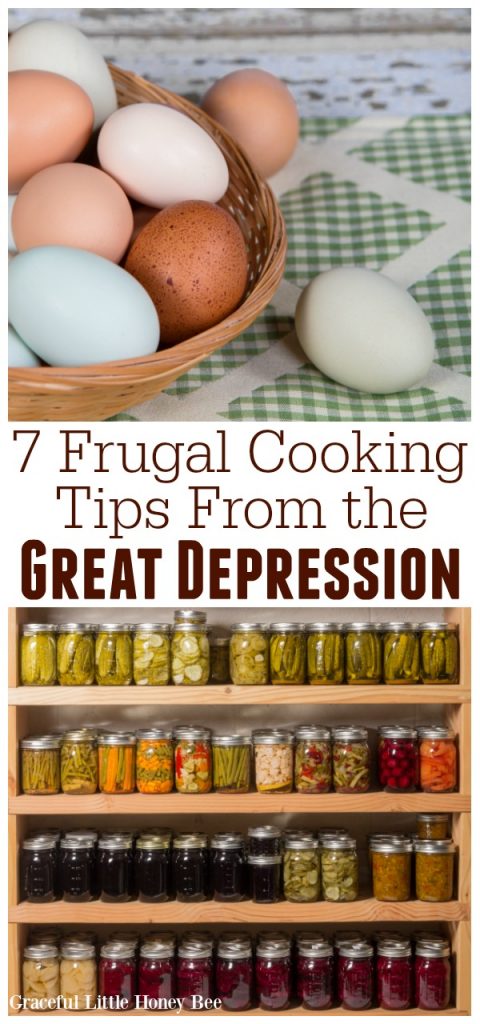
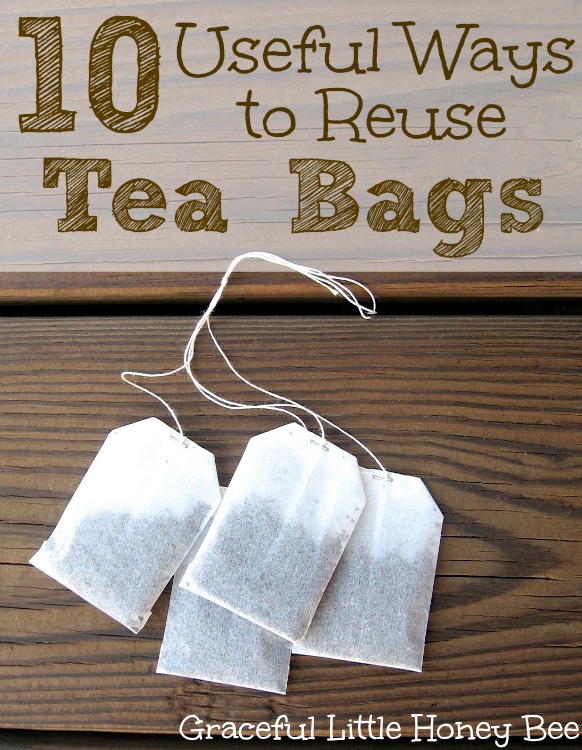
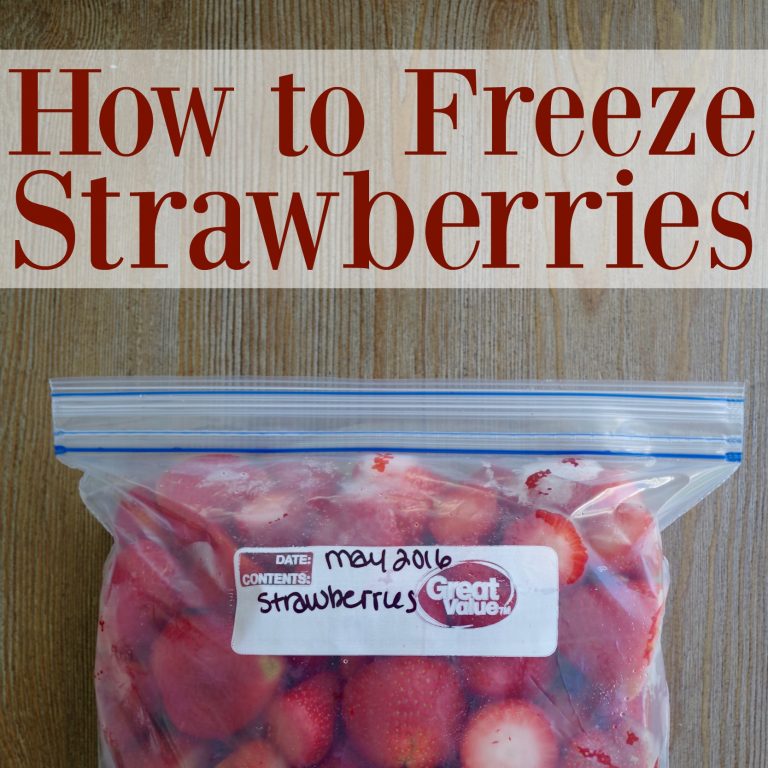
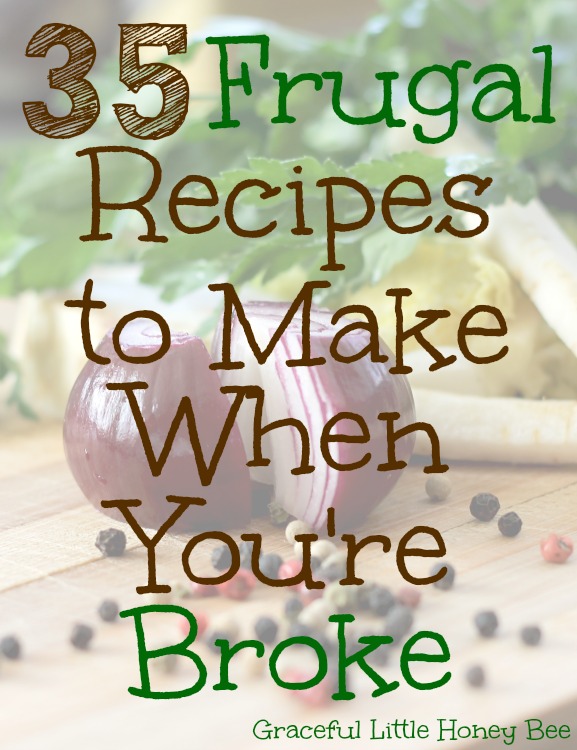
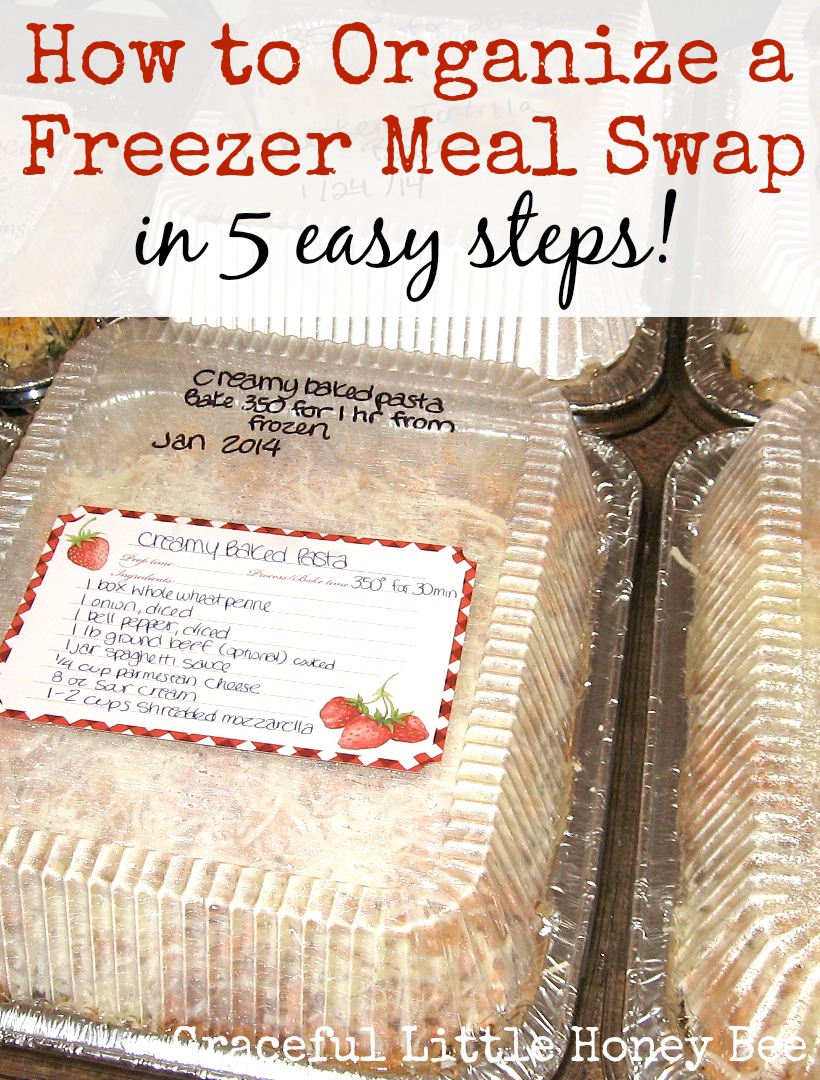
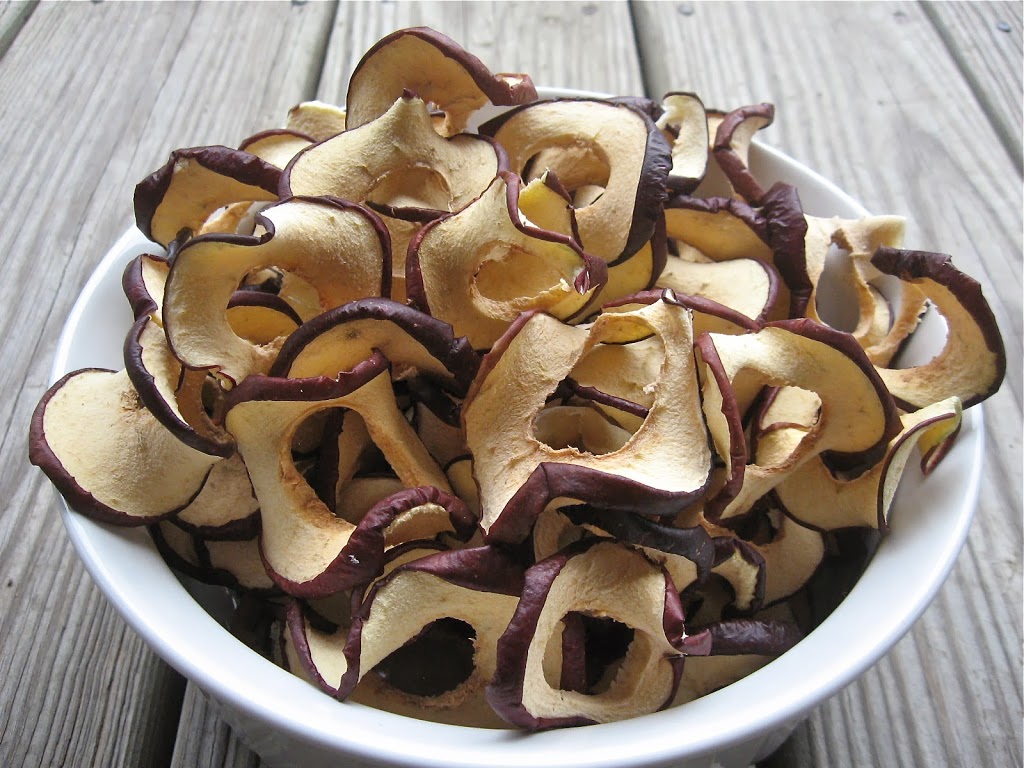

30 Comments